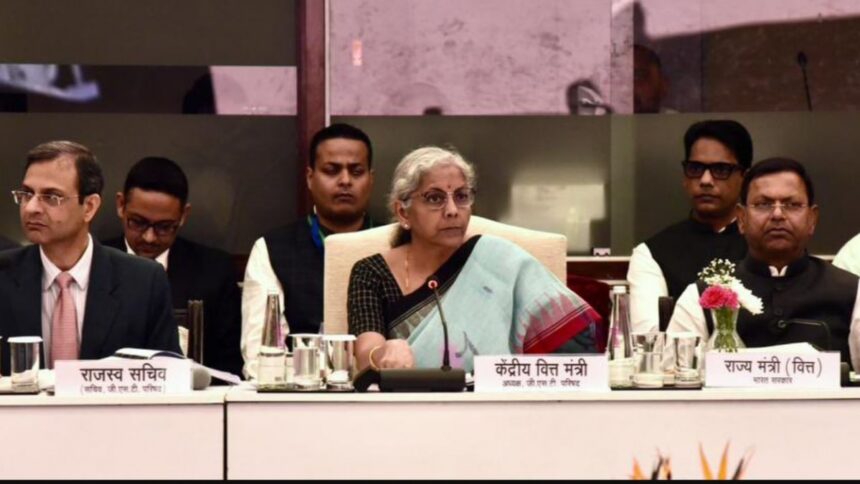There will be no backtracking on the applicability of the 28 per cent goods and services tax (GST) on online gaming, horse racing, and casinos and the amendments to the Central and State GST laws will be effective from October 1, 2023. “All the states have agreed to pass it with effect from October 1, 2023,” Revenue Secretary Sanjay Malhotra said on Saturday. This would be the case even for the states that are yet to put in place enabling legislation for this.
Also Read: GST Council meet: Council has ceded the right to tax extra neutral alcohol to states, says FM Sitharaman
As many as 18 states have passed an amendment for the levy of the tax while 13 are yet to do so or promulgate an ordinance for the same, he told reporters after the 52nd meeting of the GST Council.
A number of states including Delhi and Chhattisgarh are understood to have also raised the issue of “retrospective taxation” of online gaming companies and the notices sent to them.
Also Read: GST Council Meet: No tax rate on millet flour containing 70% composition, 5% levy on branded products, says FM
Responding to a query on this, Malhotra said that while this was raised by a few states, the GST notices being sent to a number of online gaming companies are not retrospective in nature. “This was not retrospective in any way as this was the law earlier also. The law has not been amended in any way. The liabilities were always existing as the money online games played with stakes they were already attracting by the virtue of entry of betting and gambling. The Council has not decided anything in the past. It is a prospective legislation. So whatever was the law earlier, it was clarified to them that it is because of this that these notices have gone,” he said.
Finance Minister Nirmala Sitharaman, who chaired the GST Council meeting, said that the issue of online gaming was raised by the Delhi minister and on casinos by the Goa minister. “This was taken after the GST Council meeting was over under any other item on which ministers wanted to talk. Delhi minister’s concern was that taxing them would kill the sunrise industry. Our youth need this industry and also then taking up the issue of notices which have gone to these companies. We heard her,” the FM said.
While welcoming the clarifications by the finance ministry on the issue, however, experts said there could still be some litigation on it.
Kishore Kumar, Lead, Indirect Tax, Taxmann, said the GST Council has clarified that the legislative changes done with respect to taxation of online gaming and casinos are prospective in nature. “However, the applicable GST rate on betting (which includes all categories of online gaming) has been 28 per cent since the introduction of GST,” he said.
L Badri Narayanan, an executive partner at Lakshmikumaran & Sridharan Attorneys, said that the GST council has not provided any respite for ongoing investigations and SCN issued under the earlier regime. “The revenue secretary reiterated the position that transactions being covered by the betting entry and tax are not retrospective. The tax on deposit regime is a concession extended. Companies have no option than to knock the doors of court on erroneous interpretation canvassed by the department,” he said.
GST Appellate Tribunal
Meanwhile, the GST Council also recommended amendments to the criteria for the appointment of the President and members of the GST Appellate Tribunal (GSTAT). When asked about a timeline for setting up the tribunals that have been a key demand of the industry, the Union Finance Minister said, “We are moving fast on it”.
The Council has approved a proposal to align provisions of the CGST Act, 2017 with the provisions of the Tribunal Reforms Act, 2021 for the appointment of President and Member of the proposed GST Appellate Tribunals. President and Members shall have tenure up to a maximum age of 70 years and 67 years respectively as against the current requirement of 67 years and 65 years respectively. The minimum age for eligibility for appointment as President and Member would be 50 years. Further, an advocate for 10 years with substantial experience in litigation under indirect tax laws in the Appellate Tribunal, Central Excise and Service Tax Tribunal, State VAT Tribunals, High Court, or Supreme Court would be eligible for the appointment as a judicial member.
MS Mani, Partner at Deloitte India, said it is essential that the GSTATs now start functioning at the earliest and the decision to amend the criteria for appointment of members of GSTAT will enable the same.








